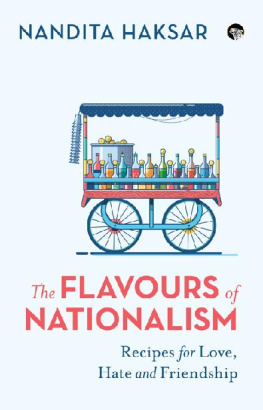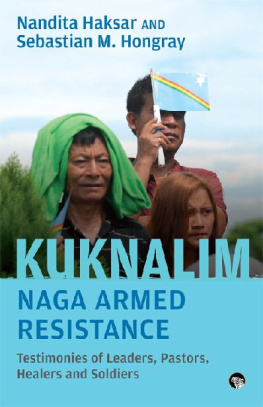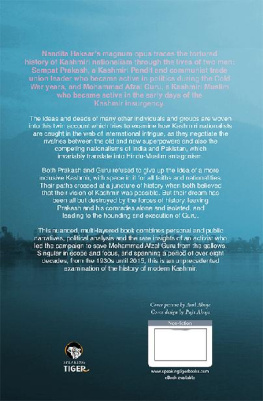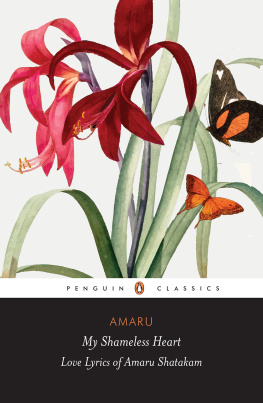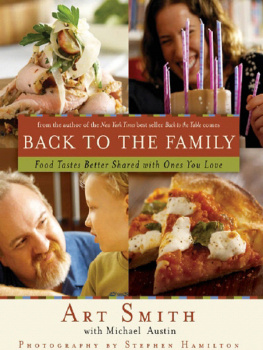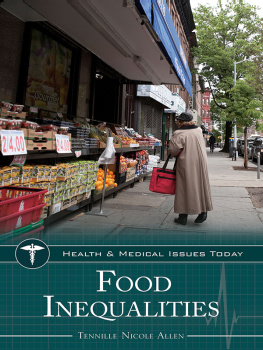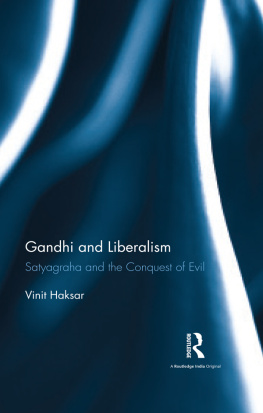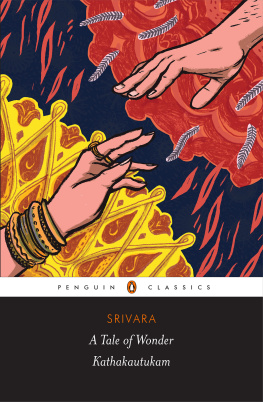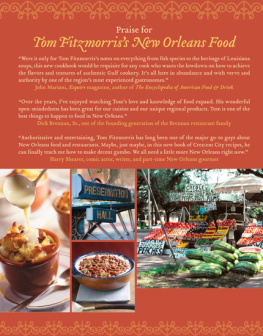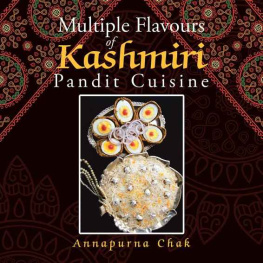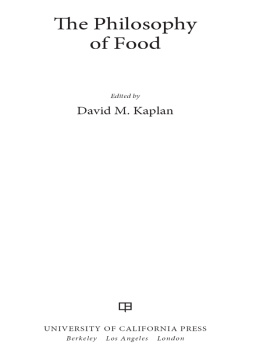Nandita Haksar is a human-rights lawyer, teacher, campaigner and writer. She has represented the victims of army atrocities in the North East India, Kashmiris framed in terrorism cases, migrant workers and refugees seeking asylum in India.
She is the author of several books, including Nagaland File: A Question of Human Rights (co-edited with Luingam Luithui) (1984); Rogue Agent: How Indias Military Intelligence Betrayed the Burmese Resistance; ABC of Naga Culture and Civilization: A Resource Book (2011); The Judgement That Never Came: Army Rule in Northeast India (co-authored with Sebastian Hongray) (2011); Across the Chicken Neck: Travels in Northeast India (2013), The Many Faces of Kashmiri Nationalism: From the Cold War to the Present Day (2015), The Exodus Is Not Over: Migrations from the Ruptured Homelands of Northeast India (2016) and Antarctica: Profits of Discovery Nationalism Beyond Borders (forthcoming).
Haksar lives in Goa, Delhi and sometimes Ukhrul, with her husband, Sebastian Hongray.
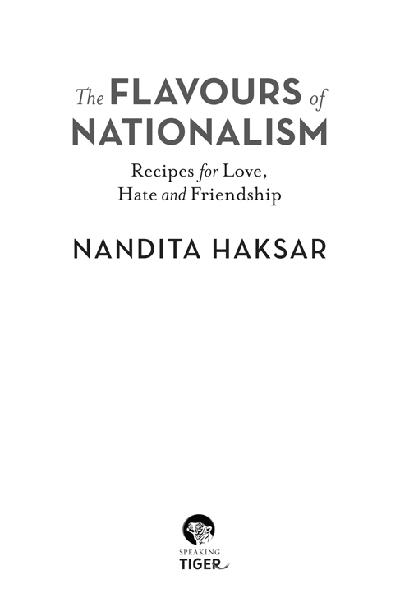
To the street vendors,
in solidarity with their struggles
CONTENTS
BY WAY OF AN INTRODUCTION
THE JUSTICE OF EATING
The thought of writing a book on the different cuisines in India came to mind when I attended my first human-rights conference in the early 1980s in Amritsar; I had just begun my life as a human-rights lawyer. It was all a new and exciting world for me. I met people from all over India and made friends, heard inspiring speeches and got to know people who had dedicated their lives to fighting against state repression. Many had risked their lives, jobs and security for justice.
The food at the conference was fabulous. I loved the dal makhani, and the rotis from the tandoor were soft, unlike the ones we got in Delhi. We had almost finished the lunch when I heard a comrade from Andhra, a member of the OCDR (Organization for Civil and Democratic Rights), ask one of the local Punjabi comrades: Is there any rasam?
Having been brought up with the Nehruvian idea that we must appreciate the cultures and cuisines of others, I was outraged with the man for not appreciating the Punjabi food on offer. Doing so was the essence of the unity in diversity ideal.
And then I saw the humour in the situation and laughed to myself. That was when I thought I would write a book called Rasam in Amritsar. The idea stayed with me. All this while, I wanted to write a lighthearted book; something to make us laugh at ourselves and our everyday prejudices, but as the book progressed, it became quite dark and grim.
When I got married to a fellow student in Jawaharlal Nehru University almost everyone, even human-rights activists, would smile and ask: Does he eat dogs? This was meant to be humour. My husband Sebastian is from the Tangkhul Naga tribe. I never knew how to respond; should I shock them by saying yes, he ate dog meat or tell them the truth, that he did not eat dog meat because he was allergic to it? And I would add: I eat dog meat. It was a way of showing solidarity with the Nagas. If I had married someone from the USA no one would have asked me whether he ate hamburgers, would they?
In India, upper-caste Hindus do not inter-dine with Dalits, Muslims and tribal people, because of what they eat. Perhaps this is the distinguishing feature of Indian society and culture.
How many of us, Indian citizens, realize that in the midst of our freedom struggle against British colonial rule, our leaders were actually debating on the efficacy of this ban on inter-dining? In 1920, Gandhi said that Hinduism does most emphatically discourage inter-dining and inter-marriage. He thought the restraint on inter-dining was essential for rapid development of the soul, conservation of certain social values and the cultivation of willpower.
But then he changed his mind and, in November 1932, he wrote: Restriction on inter-dining and inter-caste marriage is no part of the Hindu religion. It crept into Hinduism when perhaps it was in its decline.
Despite what Gandhi had written, the very idea of inter-dining was so offensive to upper-caste society that they were not willing to even hear of it. And if anyone dared to challenge the caste system, there was likely to be a riot.
In a letter dated 12 December 1935, the secretary of the Jat-Pat Todak Mandal (Society for the Abolition of the Caste System), an anti-caste Hindu reformist group organization based in Lahore, invited B.R. Ambedkar to deliver a speech on the caste system in India at their annual conference in 1936. Ambedkar wrote the speech as an essay under the title Annihilation of Caste and sent it in advance to the organizers in Lahore for printing and distribution. The organizers found many paragraphs provocative and wanted to delete them; Ambedkar declared in response that he would not change a comma of his text. The organizers withdrew the invitation to him.
In that speech, Baba Saheb Ambedkar explained why he differed from Gandhi on the efficacy of inter-dining and inter-marriage. Here is the relevant passage:
You also seem to be erring in the same way as the reformers working in the cause of removing untouchability. To agitate for and to organise inter-caste dinners and inter-caste marriages is like forced feeding brought about by artificial means. Make every man and woman free from the thraldom of the Shastras, cleanse their minds of the pernicious notions founded on the Shastras, and he or she will inter-dine and inter-marry, without your telling him or her to do so.
These debates between Gandhi and Ambedkar are very relevant today, when there is an attempt to impose the idea of India as one nation, one language, one culture and even one diet. The recent attempts to impose a ban on eating and trading beef, and the promotion of vegetarianism, have brought into focus the fact that the caste system and the ideology which sustains it is still alive. The question is how do we, who believe in democratic values and espouse liberalism, resist the imposition of this vision on our country?
The liberals, including a section of the media, have opposed the beef ban largely on the ground that it violates the human rights of an individual to choose what he or she wants to eat. However, the ban on beef is not merely a question of the violation of individual civil liberties and human rights. The language of human rights is based on the primacy of an individuals right to liberty, dignity and equality. But when millions of people are collectively denied those human rights, then we need a stronger political discourse to challenge their exclusion.
The biggest achievement of the liberals in India was their right to food campaign. The campaign led to the passing of the National Rural Employment Guarantee Act (NREGA) in August 2005, the introduction of cooked mid-day meals in all primary schools following a Supreme Court order in April 2004, and finally the passing of the National Food Security Act, 2013. But even these achievements have been undermined by the controversies over beef and vegetarianism and have served to divert public attention from the most fundamental issue: food security for the poor who cannot afford even one meal a day and the wretched condition of farmers and their families, so many of whom have been driven to committing suicide.
Farmer suicides and the crisis in the agricultural sector are related to the globalization of the food industry and the so-called food-safety laws being enacted by successive governments. These safety laws criminalize the small dhabas and the street vendors who provide affordable food to millions of people. Some experts even speak of food fascism.

